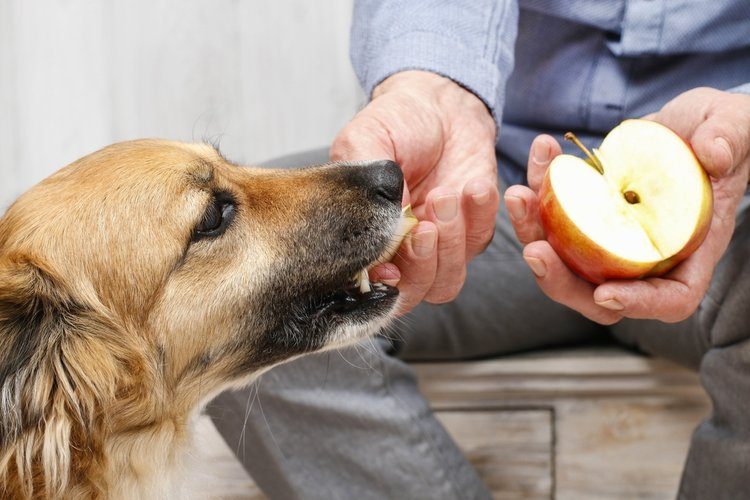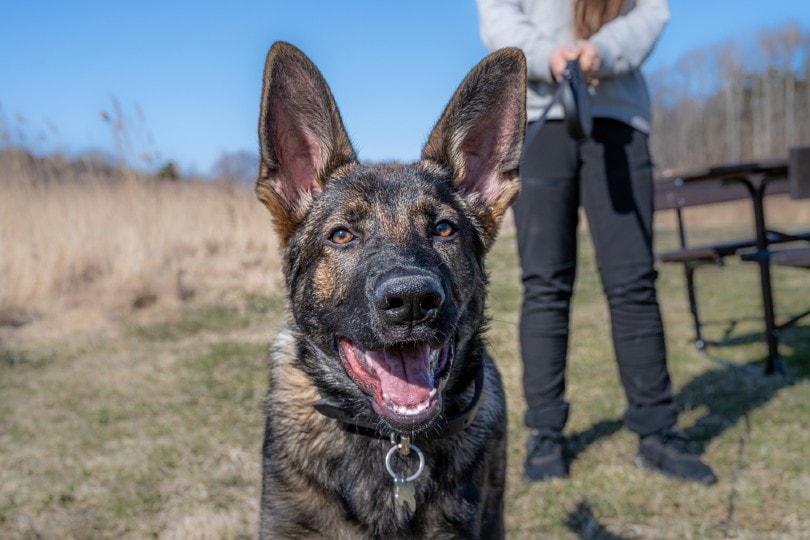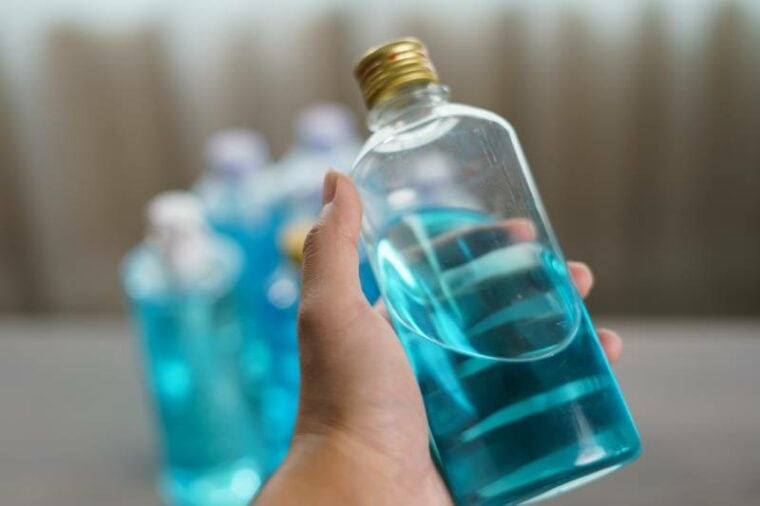
Fleas are irritating to the skin, they cause a great deal of scratching, and they never seem to give up on their goal to make both human and animal lives miserable. It’s no wonder that so many of us are always looking for ways to get rid of fleas. One solution that you may have heard of is alcohol—specifically, rubbing (isopropyl) alcohol. But does it really kill fleas? The short answer is that yes, it can. But the long answer is that treating your pet with alcohol is not the answer to flea prevention. There is much to learn about the topic, so we laid everything out for you here.
How Does Isopropyl Alcohol Kill Fleas?
Rubbing alcohol has a drying effect on a flea’s exoskeleton. So, when they’re exposed to it, fleas essentially “dry out” and die. Throwing a flea into a cup or bowl of rubbing alcohol will drown them, but this result can be achieved with a bowl of basic soapy water too. There is no magic reasoning behind it—just science.
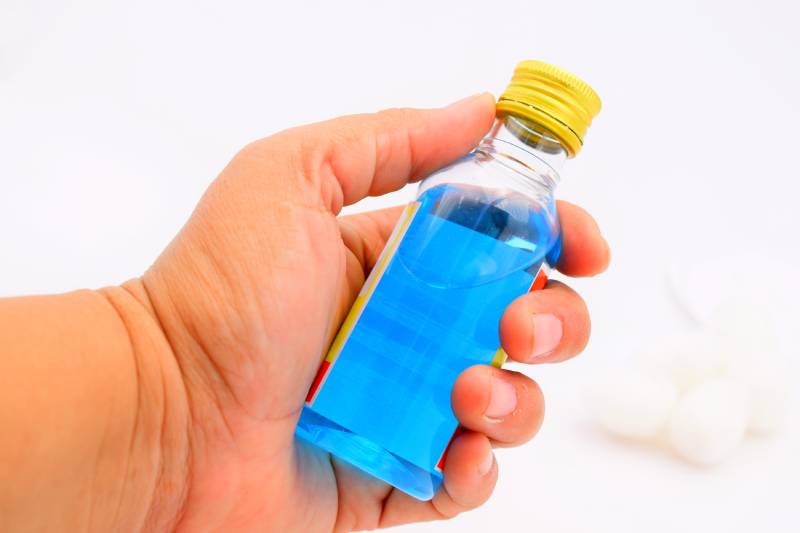
Why Shouldn’t Pets Be Treated with Rubbing Alcohol?
Isopropyl alcohol can be toxic to animals, just like it can be to humans. It’s important to note that when applied to or sprayed on the skin, rubbing alcohol is absorbed into the body. A small amount of rubbing alcohol sprayed onto the skin of your dog or cat is not likely to hurt them. However, too much exposure can result in signs of poisoning within about 30 minutes of exposure.
It’s almost impossible to know exactly how much exposure to rubbing alcohol is too much, so it’s best to avoid directly exposing your dog or cat to this substance. If your pet does get exposed to isopropyl alcohol and exhibits any of the signs listed here, it is crucial to call the Animal Poison Control hotline (888-426-4435) and find an emergency pet clinic to visit.
Can Rubbing Alcohol Be Used to Treat Bedding & Furnishings?
Isopropyl alcohol can be utilized to treat bedding and furnishings for flea control, but it should be diluted. Some people use as much as half alcohol and half water, but as little as about one part alcohol to four parts water should do the trick. It is important to make sure your pets are not in the space when treating a particular item or area in your home. Spray the diluted alcohol mixture on your pet’s bedding, your furniture, your blankets, and even your carpeting to kill fleas on contact. Then, let the pieces that you’ve treated air out and dry or throw them in the washer/dryer before allowing your pets access to them. However, alcohol is unlikely to be effective against flea eggs and larvae and may damage materials such as furnishings and carpets. It is better to vacuum, wash bedding on a hot wash and use a spray specifically designed for furniture and carpet. As your vet for recommendations.
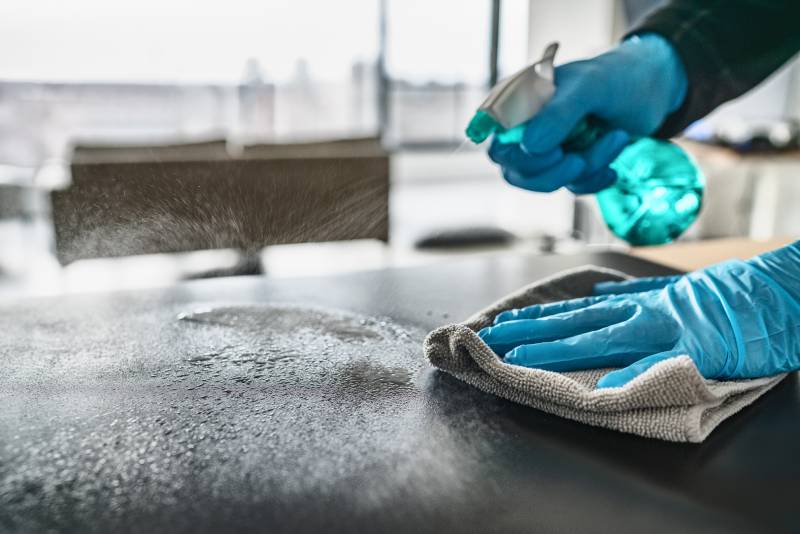
How Can Pets Be Treated for Flea Prevention?
You should treat your pets with veterinarian-approved products and tactics. Most pets should take some kind of flea-and-tick medication regularly to help prevent infestations. These medications most commonly come in tablet form or as ‘spot on’ topical drops. The best option for your pet should be determined by your veterinarian. It is important to note that many dog flea products are highly toxic to cats. You must be careful not to use dog flea treatments on cats.
Additionally, you’ll need to make vacuuming and treating the home with flea-control products a priority as time goes on. Make sure your pets are protected when visiting public places like the dog park, and ensure that they don’t get exposed to pets known to have fleas whenever possible.
What About Liquor & Other Types of Alcohol?
Besides rubbing alcohol, there are a few types of alcohol that people use. Hand sanitizer tends to also contain isopropyl or ethanol alcohol. Then there’s ethyl alcohol meant for human consumption, which comes in the forms of wine, beer, and liquor.
As with rubbing alcohol, these other types of alcohol are likely to kill fleas on contact, but none are safe options to treat pets with. Alcohol can be absorbed through the skin and animals certainly should never drink ethyl alcohol, as it is rapidly absorbed and can cause poisoning and damage to the organs. It’s just as bad for them as consuming rubbing alcohol—or any other kind of alcohol, for that matter.
Final Thoughts
Rubbing alcohol does kill fleas, but it is not a safe option for treating pets that have flea infestations. It is also not effective at preventing infestations. It’s best to work with your veterinarian to create an effective pet and home flea-prevention and -treatment plan that you can commit to for the long term.
See Also:
- Does UV Light Kill Fleas? Vet-Reviewed Effectiveness Facts
- Does Febreze Kill Fleas? Vet-Approved Risks, Alternatives, & FAQ
Featured Image Credit: MBLifestyle, Shutterstock



